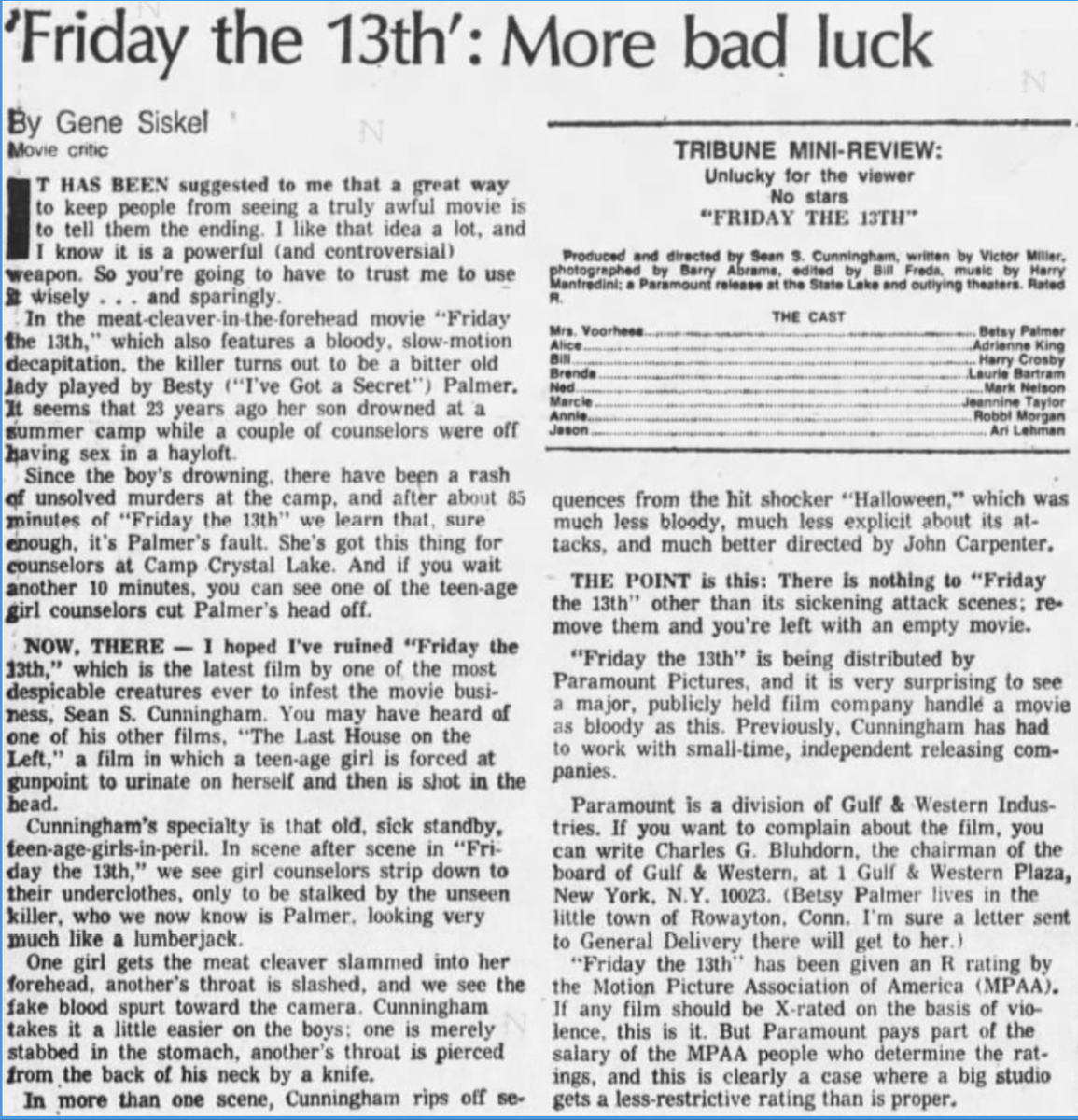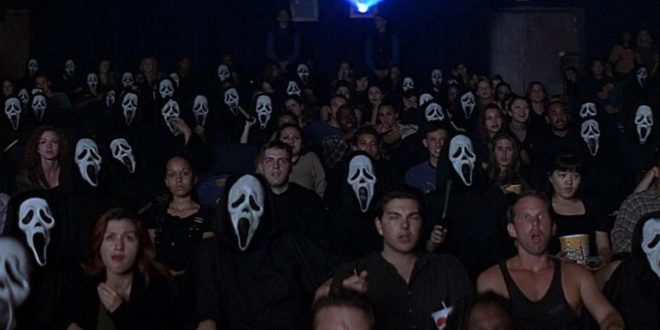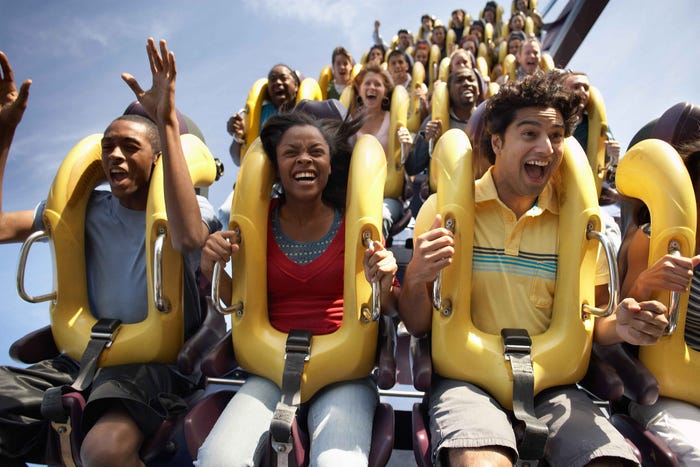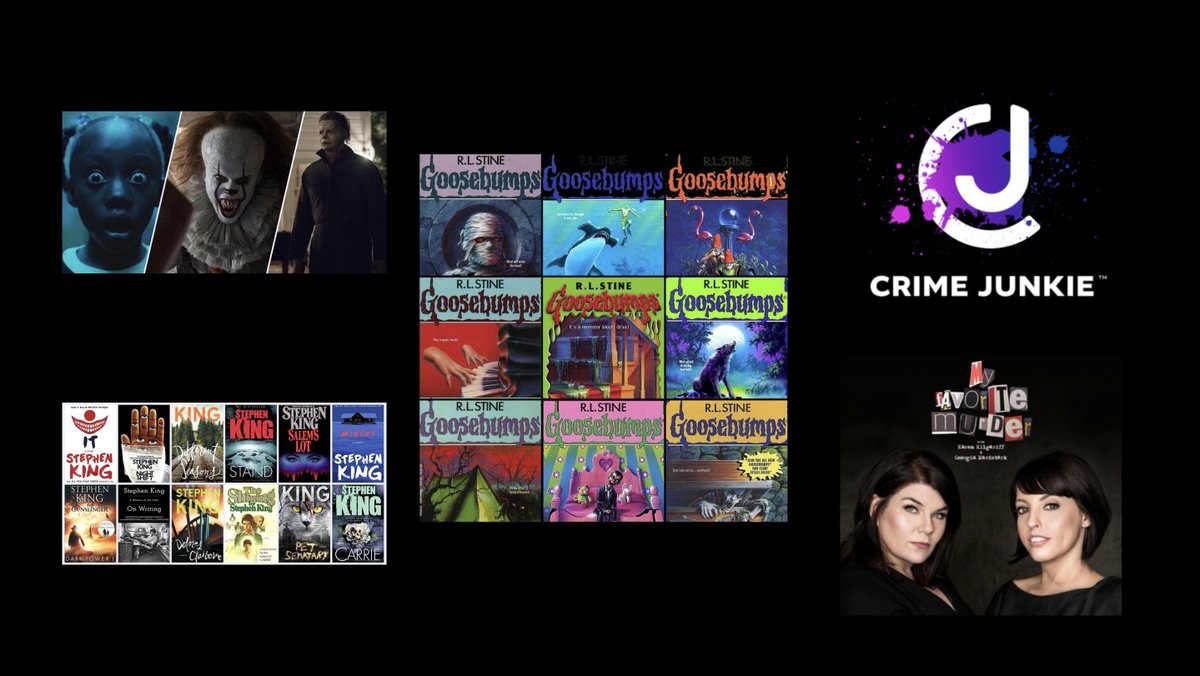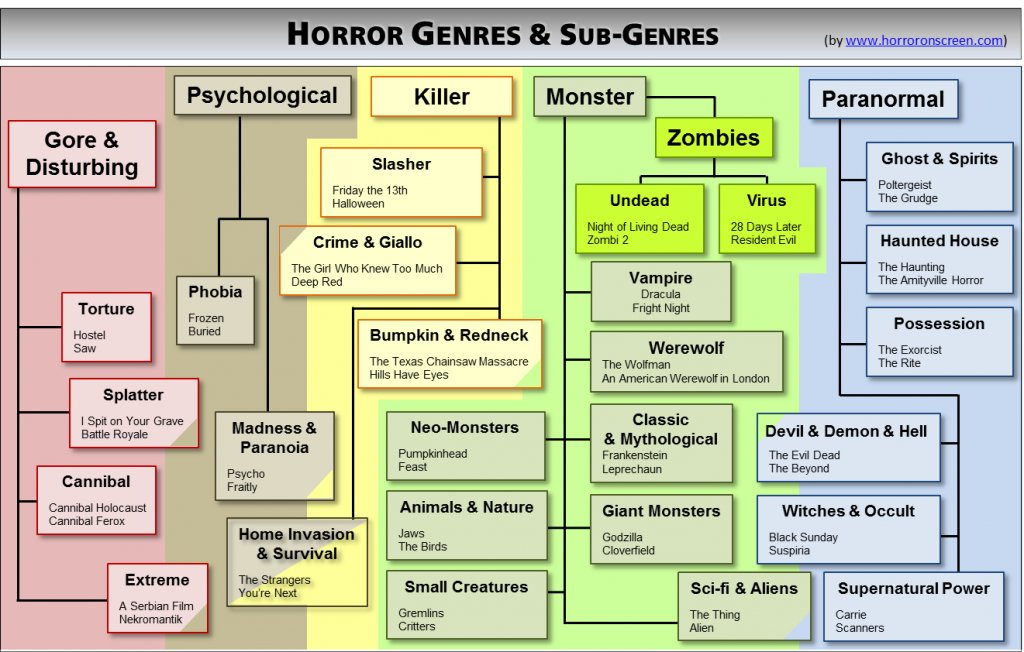
👻🎃HORROR MEGA THREAD🎃👻
Over the past few months, I've tweeted out a number of threads about the psychology of the horror genre and true crime.
I thought it would be fun to put together a mega thread of threads for the spooky season.
1/🧵
Over the past few months, I've tweeted out a number of threads about the psychology of the horror genre and true crime.
I thought it would be fun to put together a mega thread of threads for the spooky season.
1/🧵
First up, let's talk about true crime and serial killers. I've received a bunch of interview requests the past 2 weeks to talk about the new #DahmerMonster series.
Why are we fascinated with evil men? Check out this thread to learn more:
2/🧵
Why are we fascinated with evil men? Check out this thread to learn more:
https://twitter.com/MorbidPsych/status/1519000390741766144?s=20&t=3ylpdKwydPA2PGW3TG_7VQ
2/🧵
It's not just true crime villains that fascinate us. Some of the most popular horror movies center around a killer.
Michael. Jason. Freddy. Leatherface.
What makes these villains so popular? This thread explains their psychological appeal:
3/🧵
Michael. Jason. Freddy. Leatherface.
What makes these villains so popular? This thread explains their psychological appeal:
https://twitter.com/MorbidPsych/status/1559262040937574400?s=20&t=3ylpdKwydPA2PGW3TG_7VQ
3/🧵
For a deeper dive into a single villain, check out this thread on Freddy Krueger, one of the most iconic horror villains of all time:
4/🧵
https://twitter.com/MorbidPsych/status/1559641400718700546?s=20&t=3ylpdKwydPA2PGW3TG_7VQ
4/🧵
Even with an understanding of the science behind the appeal of true crime and horror, fans of these genres sometimes get side-eyed.
Here are 3 key misconceptions people have about horror fans:
5/🧵
Here are 3 key misconceptions people have about horror fans:
https://twitter.com/MorbidPsych/status/1528511141407752192?s=20&t=3ylpdKwydPA2PGW3TG_7VQ
5/🧵
Perhaps the most concerning misconception that people have about horror fans is that they lack empathy or compassion.
Check out this thread for a deeper dive on why that perception is likely wrong:
6/🧵
Check out this thread for a deeper dive on why that perception is likely wrong:
https://twitter.com/MorbidPsych/status/1538989311449870337?s=20&t=3ylpdKwydPA2PGW3TG_7VQ
6/🧵
Rather than horror necessarily being bad for you, it might actually be *good for you* in some ways!
Here are some of the psychological benefits that people get from horror.
7/🧵
Here are some of the psychological benefits that people get from horror.
https://twitter.com/MorbidPsych/status/1415869503582441482?s=20&t=Q8F1B0cEQBdvAuOYNQR4sQ
7/🧵
Of course, like all things, enjoyment of horror has some possible drawbacks.
One of those drawbacks is that horror fans might be a bit more prone to conspiracy theories due to their interest in threats:
8/🧵
One of those drawbacks is that horror fans might be a bit more prone to conspiracy theories due to their interest in threats:
https://twitter.com/MorbidPsych/status/1551990803656052736?s=20&t=9vRI5L1u-32kQiFQg0XUdA
8/🧵
And finally, one of my favorite threads. Horror is an exciting genre and I'm always learning something new about it.
Here's a thread with some of my favorite infographics about horror. I suspect some of these will surprise you as much as they did me!
Here's a thread with some of my favorite infographics about horror. I suspect some of these will surprise you as much as they did me!
https://twitter.com/MorbidPsych/status/1505808599569870852?s=20&t=1rvpFmV2nRLfmI2vH8rSrw
And of course, some spooky accounts to follow:
@RecFearLab
@MathiasClasen
@TTerkildsen
@HorrorLex
@ScholarHorror
@MHhorrordoc
@cass__clarke
@NeuroYogacara
@FacultyofHorror
@ZombifiedMedia
@horrorhomeroom
@CryptTV
@DreadCentral
@BDisgusting
@FreddyInSpace
@RecFearLab
@MathiasClasen
@TTerkildsen
@HorrorLex
@ScholarHorror
@MHhorrordoc
@cass__clarke
@NeuroYogacara
@FacultyofHorror
@ZombifiedMedia
@horrorhomeroom
@CryptTV
@DreadCentral
@BDisgusting
@FreddyInSpace
Also, shoutout to the many collaborators who have done some spooky science with me
@RecFearLab
@MathiasClasen
@Marc_M_Andersen
@TTerkildsen
@mihaela_taranu
@JensKC
@JStubbersfield
@KChristensenPhD
@MichaelLouisPl1
@paola_baca527
@willjharrison
@PredictiveLife
@RecFearLab
@MathiasClasen
@Marc_M_Andersen
@TTerkildsen
@mihaela_taranu
@JensKC
@JStubbersfield
@KChristensenPhD
@MichaelLouisPl1
@paola_baca527
@willjharrison
@PredictiveLife
Almost forgot @QuERBYLAB and @PEEP_lab!
• • •
Missing some Tweet in this thread? You can try to
force a refresh









